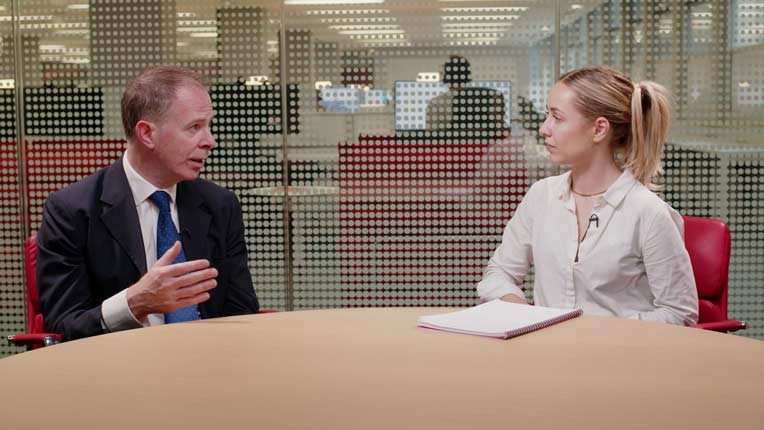Click here for our coverage of the latest Morningstar Investment Conference UK in our special report: What the Experts Say, on subjects ranging from Brexit and risk management to the cost of funds and the future of advice.
Emma Wall: Hello, and welcome to Morningstar. I'm Emma Wall and I'm joined today by San Lie, Director of Manager Research for Morningstar Benelux.
Hello.
So, we're here at the Morningstar Investment Conference in London and you've just been speaking to a room full of advisers, educating advisers about how to use the new Morningstar rating. But let's leave that to one side for a second and I wanted to look at ESG investing as a whole. It's still in its new stage is ESG. Who is engaging with it at the moment? Is it institutional? Is it retail investors?
San Lie: Well, thus far, it's mainly institutional [investors]. We see a number of pension funds, especially in the Nordics and the Netherlands that – for them it's really a big serious issue. So, there is greener portfolio based on the environmental impacts, social impacts, et cetera, et cetera. But we also see a shift towards retail investors, mainly through high-net-worth individuals initially but also retail that are interested in it. And especially, I would say Millennials, the newer generation, but also female investors today apparently really want to express their own personal values also in their portfolio.
Wall: And this is not just something that we're seeing among Millennials when it comes to investing, is it? It's a real psyche shift among that age group. They want to see ESG in all parts of their lives, don't they?
Lie: Exactly. I mean, if you look at, for example, cars, I think our generation we all want to drive our own car whereas Millennials, they don't mind sharing a car. It's about the employers they look for, they want to see that their employer is one which looks at the broader society impact that they have.
If you look at where they buy the groceries, that's pure organic. So, you see a big shift in the newer generation. And I think that's very interesting that perhaps now a lot of retail investors, especially perhaps – but older generation don't care that much, but especially the new generation, they really want to embrace this and want to see their values back in their portfolio.
Wall: Absolutely, because if you're applying those very stringent tests to where you want to work and where you want to spend your money, it makes logical sense that when it comes to investing decisions you won't just abandon those morals; you'd want to apply those – you want to invest your money with those types of companies as well?
Lie: Exactly. And so, if you take it a bit further even you see, for example, [they are into] impact investing. Which is even more looking at what's really the impact of your investments, so not so much looking at the financial return, but also at the social return.
So, I'll take, for example, microfinance where you know that as an investor you hardly get any financial return, perhaps 2%, 3% max, but you know that the money that you invest is really going to poor families and to small entrepreneurs that are making your money work.
So, indeed, I think especially that generation, yeah, once you see what's happening with your money, once you see it work, and of course, they are interested as well in, let's say, a financial return. It's not a philosophy but they also want to see how it has really a big impact on society.
Wall: And if retail investors want to make these ESG-driven investment decisions, how can they use the new Morningstar rating to help inform those investment decisions?
Lie: Well, I think that's a great thing of our new ratings that we really bring it from the institutional world to the retail world. So, on our websites across the globe people can access these ratings. If you are interested in certain funds and certain category, of course you can already look at the financial, the risk-adjusted returns, you can look who is the manager, you can look at our analyst ratings.
There's a lot of ways to look at a fund. And this is really this additional lens that can help you if you have, for example, two funds that look very similar in terms of strategy, performance, et cetera, et cetera, if you're also interested in, let's say, the environmental or social impact it has then these ratings are a great tool because you can compare like with our Star ratings what are the best 10%, so they get five globes, the worst 10% get only one globe and rest of them in the middle. So, it can really help you to pick the right fund which is really much in line with your own values.
Wall: San, thank you very much.
Lie: You’re welcome.
Wall: This is Emma Wall for Morningstar. Thank you for watching.




























